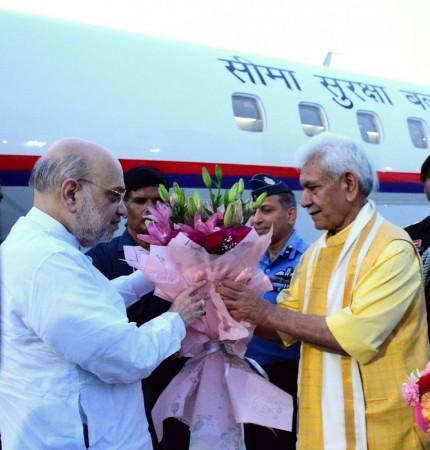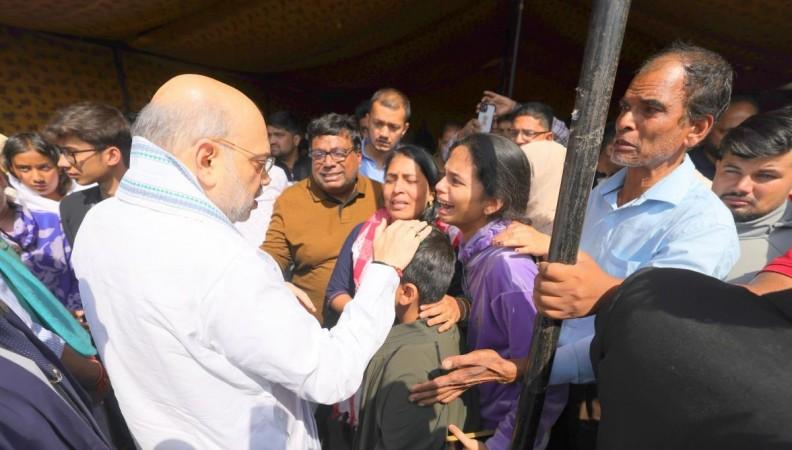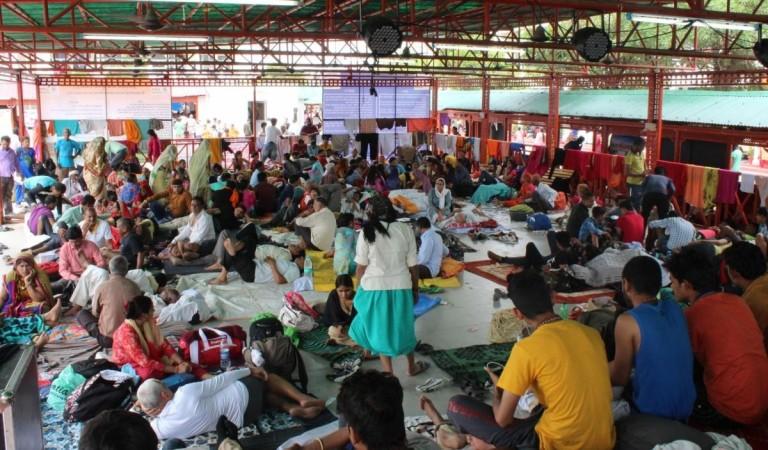
Union Home Minister Amit Shah arrived in Jammu on Thursday evening for a crucial two-day visit to the Union Territory of Jammu and Kashmir.
Shortly after his arrival, Shah was received by Lieutenant Governor Manoj Sinha at the airport and proceeded directly to the Raj Bhawan, where he is scheduled to chair a high-level security meeting. The meeting will review the overall security scenario in the Union Territory following Operation Sindoor, as well as the preparedness for the upcoming Amarnath Yatra, which begins on July 3.
This marks Shah's first visit to Jammu and Kashmir since Operation Sindoor.
According to reports, during his stay in the Jammu region, the Home Minister will also visit religious sites, meet with families affected by cross-border shelling, and interact with Border Security Force (BSF) personnel in Poonch district. Poonch witnessed the highest number of civilian casualties—14 out of 18—during Pakistani shelling and drone attacks between May 7 and 10.
The security review meeting, scheduled for late Thursday night at Raj Bhawan, will be attended by Lieutenant Governor Manoj Sinha and senior officials from the Army, paramilitary forces, Jammu and Kashmir Police, intelligence agencies, and the civil administration. The 90-minute meeting will focus on the internal security situation, ongoing anti-terrorist operations, and arrangements for the Amarnath pilgrimage.

After spending the night in Jammu, Shah will fly to Poonch on Friday, where he will meet with families affected by the recent shelling.
Massive force deployment ahead of Amarnath Yatra
In preparation for the Shri Amarnath Yatra, the Centre has approved the massive deployment of 581 companies of Central Armed Police Forces (CAPFs)—amounting to approximately 42,000 personnel. These forces will be responsible for securing Yatra routes, base camps, pilgrim convoys, and sensitive regions, including Srinagar. Of the total, 424 companies will be fresh deployments, while around 80 companies previously stationed during Operation Sindoor will be reassigned to Yatra duties.

Security forces have been instructed to reach their designated positions by mid-June. Meanwhile, advanced surveillance systems are being installed along border areas and vulnerable points. The BSF has confirmed that new-generation sensors capable of detecting cross-border movement are being rapidly deployed to curb infiltration.
Earlier this week, CRPF Director General Gyanendra Pratap Singh conducted an aerial survey of the Yatra route and held a detailed security review in Kashmir. BSF DG Daljit Singh Chaudhary is also expected to visit Srinagar shortly to assess border security preparedness.
On Tuesday, Chief Minister Omar Abdullah visited the Nunwan Base Camp in Pahalgam to inspect ongoing preparations. Officials stated that both the Pahalgam and Baltal routes are being secured with multi-layered security measures, including drone surveillance, anti-sabotage checks, and enhanced road-opening parties.








